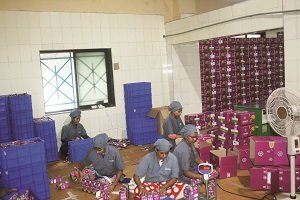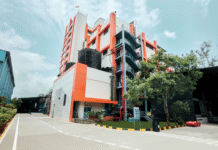Mumbai-based Aastha Enterprises is a shining example of how one can draw lessons from setbacks and emerge even stronger. Started by Hitesh Khushalani in 2003, the company began with making pre-mixes manually. As business expanded, it shifted to a bigger premise in Ambernath MIDC in 2008 and bought one form fill seal (FFS) machine for small sachets and another one for 1 kg packs. Aastha then launched its own brand of small sachet pre-mix in the Indian market but due to various factors, it failed to generate the desired response from the market.
“Our first attempt of launching a small sachet did not get the response we wanted. This was mainly due to the quality of packaging. The machines we were using were not up to the mark. We did not get the desired productivity and there was a lot of downtime,” says Khushalani.
Success with Nichrome

Khushalani was not ready to let the setback get the better of him. He began his search for the right machine and after almost two years of extensive research and assessing numerous machine manufacturers, he zeroed in on Nichrome and bought the first Nichrome FFS machine in 2011.
In early 2014, Aastha tied up with Kuwait-based San Ramon Trading to manufacture single serve tea and coffee pre-mixes under the brand name Karak Tea. As the Karak Tea brand gained traction in the Gulf countries, the company began adding more capacity and its Nichrome FFS machine installations base grew rapidly, where during 2014-2016, Aastha installed six more Stickpack machines from Nichrome. Today, Aastha has seven machines from Nichrome.
“Nichrome needs no introduction. The hardware in their machines is the best in class and the company is technically very sound. The after sales is also very prompt. It has been a very successful partnership. Aastha has benefited from their technology and they have showcased us as a successful partner,” says Khushalani.
The company now has a capacity to produce 150,000 single serve sachets of 20 grams every day. The active production days in a month are 20 while five days are dedicated towards maintenance of machines as the company ensures the right hygiene levels are maintained.
Stepping into America
Aastha’s business is completely export driven and its main market in the Gulf region has been growing at almost 25% every year. With three years of catering to the Gulf markets, the plan is now to take the Karak Tea brand into the lucrative American market, which has a substantial population of South Asians as well as people from Gulf nations.
“We have gained a significant experience by successfully servicing the markets in the Gulf region. And this gives us the confident to enter a developed market like the U.S. We are expected to get USFDA approval by August-end. We would be looking to work with entities like Patel Brothers in the U.S. We are confident of achieving success there,” Khushalani says.
The business model for the U.S. market will be like that in the Gulf markets. All the marketing and promotion of Karak Tea will be done by San Ramon Trading while Aastha will manufacture the pre-mixes.
Indian market too in sight

Until now Aashta has been serving the export market but it is now ready to start a second stint in the Indian market. It will be soon launching its own brand of coffee and tea pre-mixes, Kohinoor, for the Indian market. Unlike Karak Tea brand, which is owned by San Ramon, the Kohinoor brand will be owned by Aastha, who will also handle its marketing.
According to Khushalani, initially the focus will be on targeting institutional buyers in India like hotels and travel agencies who take guided tour groups for overseas vacations.
“The idea behind supplying to institutional buyers initially is that they can be repeat customers who can generate big volumes. Direct retailing, at least in the beginning, will not be done as it is expensive and sufficient volumes are not there,” he argues.
Ready for increased demand
With new demand expected to emerge as the Karak Tea brand enters U.S. and the Kohinoor brand is set to launch in India, Aastha is working on doubling the shifts. Presently, it runs a single shift of 10 hours every day. Khushalani informs that the company may run a second 10-hour shift to manage the increased production demand.
Currently, the company’s MIDC facility has a ground floor and a first floor of which only the ground floor is being used. The first floor will be ready by year-end.











